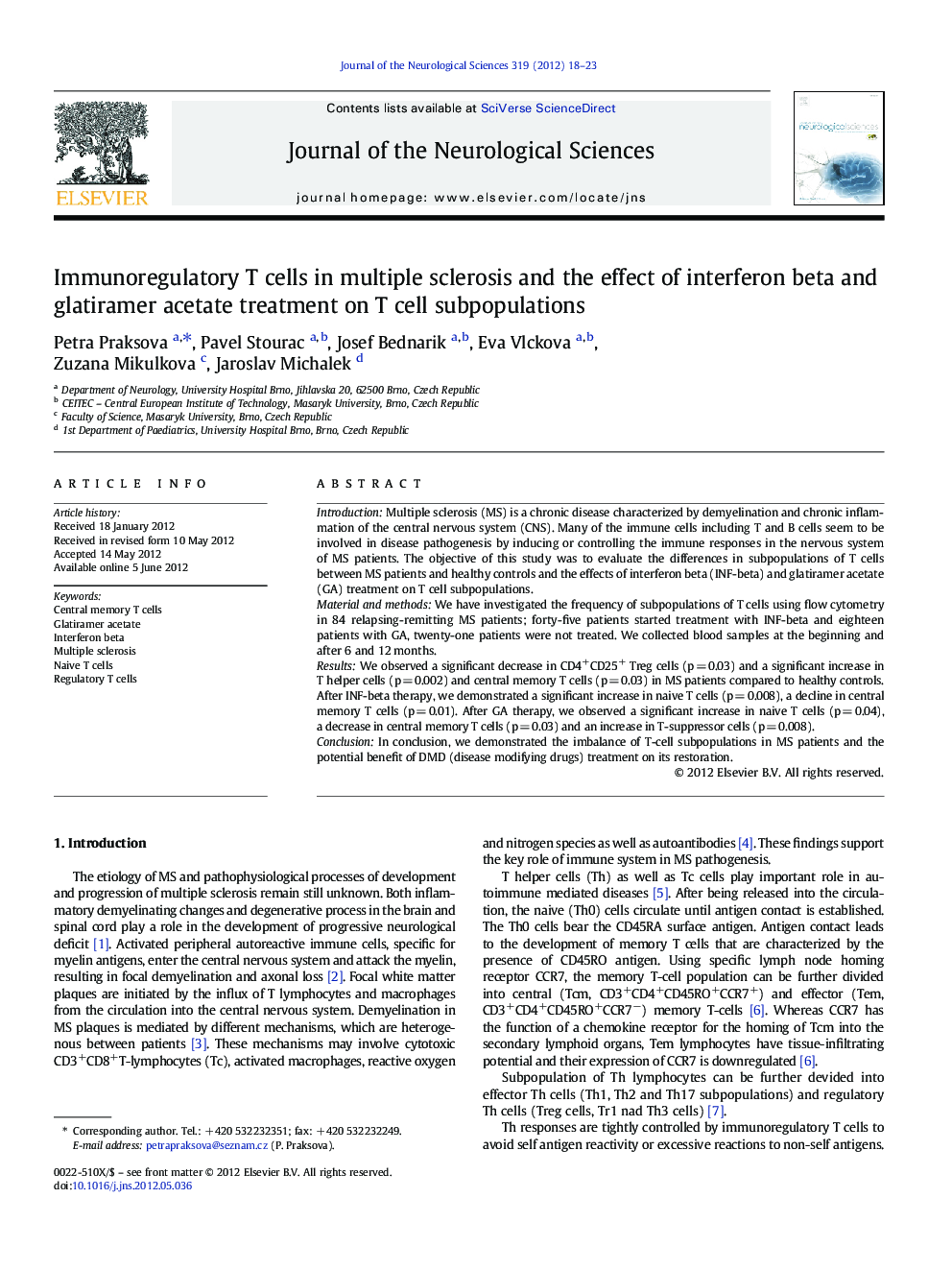| Article ID | Journal | Published Year | Pages | File Type |
|---|---|---|---|---|
| 1913991 | Journal of the Neurological Sciences | 2012 | 6 Pages |
IntroductionMultiple sclerosis (MS) is a chronic disease characterized by demyelination and chronic inflammation of the central nervous system (CNS). Many of the immune cells including T and B cells seem to be involved in disease pathogenesis by inducing or controlling the immune responses in the nervous system of MS patients. The objective of this study was to evaluate the differences in subpopulations of T cells between MS patients and healthy controls and the effects of interferon beta (INF-beta) and glatiramer acetate (GA) treatment on T cell subpopulations.Material and methodsWe have investigated the frequency of subpopulations of T cells using flow cytometry in 84 relapsing-remitting MS patients; forty-five patients started treatment with INF-beta and eighteen patients with GA, twenty-one patients were not treated. We collected blood samples at the beginning and after 6 and 12 months.ResultsWe observed a significant decrease in CD4+CD25+ Treg cells (p = 0.03) and a significant increase in T helper cells (p = 0.002) and central memory T cells (p = 0.03) in MS patients compared to healthy controls. After INF-beta therapy, we demonstrated a significant increase in naive T cells (p = 0.008), a decline in central memory T cells (p = 0.01). After GA therapy, we observed a significant increase in naive T cells (p = 0.04), a decrease in central memory T cells (p = 0.03) and an increase in T-suppressor cells (p = 0.008).ConclusionIn conclusion, we demonstrated the imbalance of T-cell subpopulations in MS patients and the potential benefit of DMD (disease modifying drugs) treatment on its restoration.
